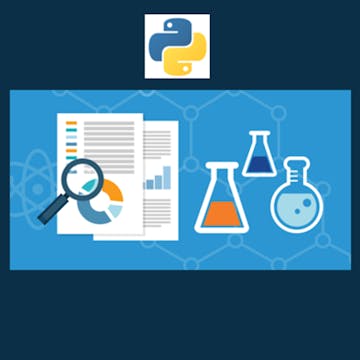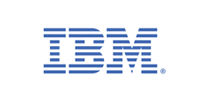
Este curso do projeto de conclusão mostrará um pouco do que os cientistas de dados passam na vida real ao trabalhar com dados.
Você aprenderá sobre dados de localização e diferentes provedores de dados de localização, como o Foursquare. Você aprenderá como fazer chamadas de API RESTful para a API do Foursquare a fim de recuperar dados sobre locais em diferentes bairros do mundo. Você também aprenderá como usar a criatividade quando os dados não estiverem disponíveis na hora, coletando dados da Web e analisando o código HTML. Você utilizará Python e sua biblioteca do Pandas para manipular dados, o que ajudará você a refinar suas...
Read more
Good to know
Save this course
Activities
Organize course materials
Show steps
Organize your notes and assignments to enhance your comprehension
Show steps
-
Create a dedicated folder for course materials
-
Regularly add notes, assignments, and quizzes to the folder
Refresh your HTML knowledge
Show steps
Brush up on HTML to enhance your web scraping skills
Browse courses on
HTML
Show steps
-
Review HTML tutorials
-
Practice writing basic HTML code
Review Data Science for Business
Show steps
Review this book to get a foundational understanding of data science concepts
View
Data Science for Business: What You Need to...
on Amazon
Show steps
-
Read the first three chapters of the book
-
Summarize the key concepts discussed in each chapter
Seven other activities
Expand to see all activities and additional details
Show all ten activities
Explore Folium documentation
Show steps
Follow guided tutorials or documentation on Folium to enhance your understanding of its features and how to create interactive maps.
Browse courses on
Folium
Show steps
-
Visit the Folium documentation website.
-
Read through introductory tutorials on creating maps.
Analyze data using Pandas
Show steps
Engage in practice exercises that involve manipulating and analyzing data using Pandas, solidifying your ability to prepare data for geospatial analysis.
Browse courses on
Pandas
Show steps
-
Solve problems on LeetCode or Kaggle related to data manipulation.
-
Create your own datasets and practice using Pandas functions.
Follow tutorials on Python data analysis
Show steps
Follow guided tutorials to enhance your Python data analysis skills
Browse courses on
Python
Show steps
-
Find tutorials on Python data analysis
-
Watch the tutorials and follow along with the examples provided
Scrape data from Foursquare
Show steps
Start a hands-on project that involves scraping data from Foursquare using Python, allowing you to practice data retrieval and manipulation skills relevant to this course.
Browse courses on
Data Scraping
Show steps
-
Set up a Python environment with necessary libraries.
-
Obtain a Foursquare API key.
-
Write code to make API calls and parse JSON responses.
-
Store the scraped data in a structured format.
Practice using the Foursquare API
Show steps
Complete practice drills to become proficient in using the Foursquare API
Browse courses on
Foursquare API
Show steps
-
Create a Foursquare developer account
-
Install the Foursquare API Python library
-
Use the Foursquare API to get data on venues in a specific city
Develop a geospatial data dashboard
Show steps
Create a dashboard that visualizes geospatial data using tools such as Folium, reinforcing your ability to communicate findings through interactive and dynamic visualizations.
Show steps
-
Design the dashboard layout and choose appropriate visualizations.
-
Integrate Folium maps and other interactive elements.
-
Set up a hosting platform for the dashboard.
Create a data visualization project
Show steps
Create a data visualization project to showcase your understanding of the course material
Browse courses on
Data Visualization
Show steps
-
Choose a dataset to visualize
-
Clean and prepare the data
-
Create a data visualization using a tool like Tableau or Power BI
Organize course materials
Show steps
Organize your notes and assignments to enhance your comprehension
Show steps
- Create a dedicated folder for course materials
- Regularly add notes, assignments, and quizzes to the folder
Refresh your HTML knowledge
Show steps
Brush up on HTML to enhance your web scraping skills
Browse courses on
HTML
Show steps
- Review HTML tutorials
- Practice writing basic HTML code
Review Data Science for Business
Show steps
Review this book to get a foundational understanding of data science concepts
View
Data Science for Business: What You Need to...
on Amazon
Show steps
- Read the first three chapters of the book
- Summarize the key concepts discussed in each chapter
Explore Folium documentation
Show steps
Follow guided tutorials or documentation on Folium to enhance your understanding of its features and how to create interactive maps.
Browse courses on
Folium
Show steps
- Visit the Folium documentation website.
- Read through introductory tutorials on creating maps.
Analyze data using Pandas
Show steps
Engage in practice exercises that involve manipulating and analyzing data using Pandas, solidifying your ability to prepare data for geospatial analysis.
Browse courses on
Pandas
Show steps
- Solve problems on LeetCode or Kaggle related to data manipulation.
- Create your own datasets and practice using Pandas functions.
Follow tutorials on Python data analysis
Show steps
Follow guided tutorials to enhance your Python data analysis skills
Browse courses on
Python
Show steps
- Find tutorials on Python data analysis
- Watch the tutorials and follow along with the examples provided
Scrape data from Foursquare
Show steps
Start a hands-on project that involves scraping data from Foursquare using Python, allowing you to practice data retrieval and manipulation skills relevant to this course.
Browse courses on
Data Scraping
Show steps
- Set up a Python environment with necessary libraries.
- Obtain a Foursquare API key.
- Write code to make API calls and parse JSON responses.
- Store the scraped data in a structured format.
Practice using the Foursquare API
Show steps
Complete practice drills to become proficient in using the Foursquare API
Browse courses on
Foursquare API
Show steps
- Create a Foursquare developer account
- Install the Foursquare API Python library
- Use the Foursquare API to get data on venues in a specific city
Develop a geospatial data dashboard
Show steps
Create a dashboard that visualizes geospatial data using tools such as Folium, reinforcing your ability to communicate findings through interactive and dynamic visualizations.
Show steps
- Design the dashboard layout and choose appropriate visualizations.
- Integrate Folium maps and other interactive elements.
- Set up a hosting platform for the dashboard.
Create a data visualization project
Show steps
Create a data visualization project to showcase your understanding of the course material
Browse courses on
Data Visualization
Show steps
- Choose a dataset to visualize
- Clean and prepare the data
- Create a data visualization using a tool like Tableau or Power BI
Career center
Data Scientist
Data Analyst
Data Engineer
Machine Learning Engineer
Software Engineer
Web Developer
Business Analyst
Project Manager
Product Manager
Marketing Manager
Sales Manager
Operations Manager
Financial Analyst
Consultant
Teacher
Reading list
Share
Similar courses
OpenCourser helps millions of learners each year. People visit us to learn workspace skills, ace their exams, and nurture their curiosity.
Our extensive catalog contains over 50,000 courses and twice as many books. Browse by search, by topic, or even by career interests. We'll match you to the right resources quickly.
Find this site helpful? Tell a friend about us.
We're supported by our community of learners. When you purchase or subscribe to courses and programs or purchase books, we may earn a commission from our partners.
Your purchases help us maintain our catalog and keep our servers humming without ads.
Thank you for supporting OpenCourser.



